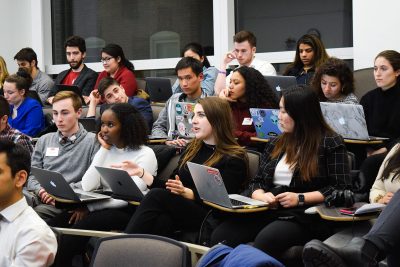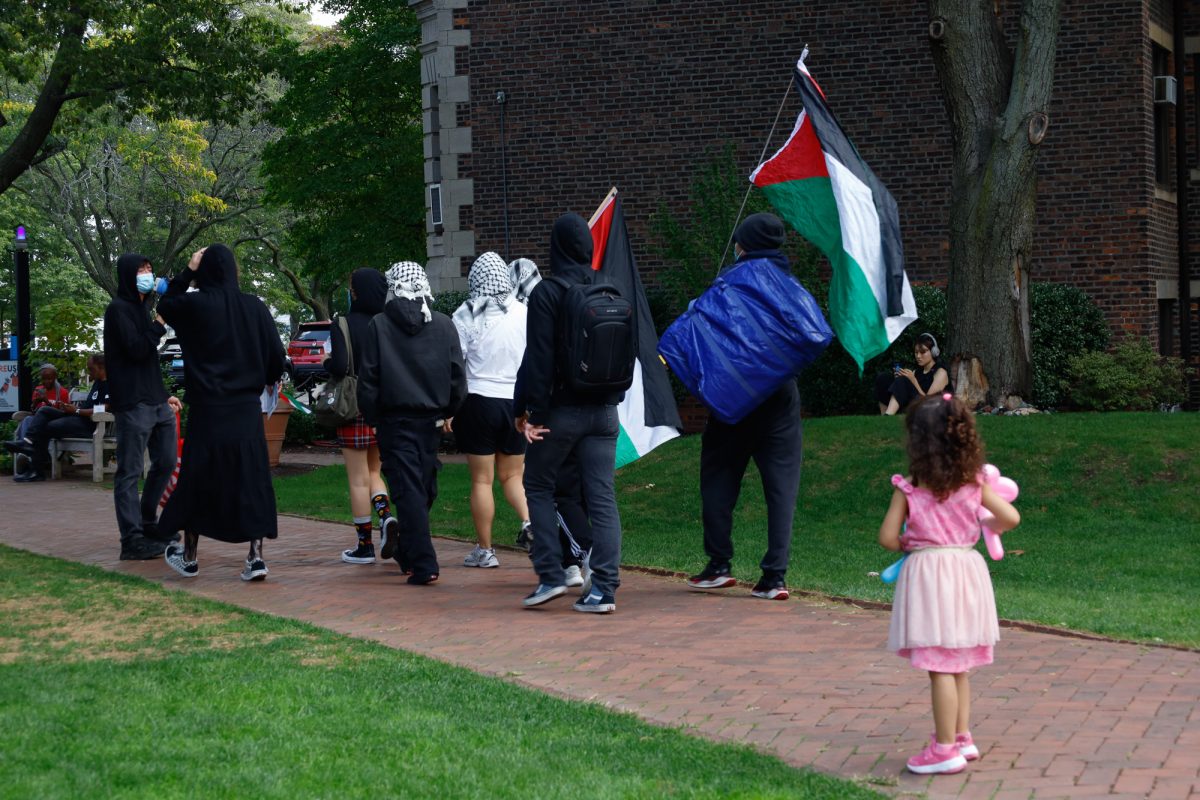
In a virtual meeting on Zoom Monday night, Boston University’s Student Government discussed the allocation of the semester’s remaining funds, passed the Emergency Powers Act, and heard updates from the Student Election Commission.
SG president Hafzat Akanni, a senior in the College of Arts and Sciences, began Monday’s online Senate meeting by discussing what will happen to Senate funds this semester now that they can no longer be put towards developing on-campus projects.
Although Senate voted to reallocate their leftover budget to the university at the last online meeting, Akanni said Senate will not be able to donate their remaining funds. She also said if they were to donate their funds, it would go towards the Dean’s Emergency Fund, a financial resource provided by the Office of the Dean of Students for students who experience sudden disruptions to their living situation.
Akanni said Kenneth Elmore, the dean of students, informed her the fund did not require additional support from Senate.
“The Dean’s Emergency Fund doesn’t need [BUSG]’s help,” Akanni said. “It has a lot of money and is actually being very successful at helping students who are asking for help.”
Akanni said the remaining budget will be put into a reserve from which other student organizations can request funds in coming years.
“At the end of the academic year, any money that has been given to the university through the [Community Student Fee] that is not spent on programming will be swept back into the reserve,” Akanni said. “That happens at the end of each fiscal year and at the beginning of each academic year. All student organizations and governments get another amount of money.”
Andrea Gomez, a junior in CAS and chief justice of SG, proposed the 2020 Emergency Powers Act, which stipulated that “Senate may in times of emergency, as voted into effect by a supermajority vote, pass an Emergency Powers Resolution, that will expire after 30 days or less, as deemed applicable to all branches.”
The act would be applicable for any situation in which SG would not be able to operate normally for an extended period of time, and all bylaws and regulations would be overridden to ensure maximum efficiency of Senate procedures.
Senator Aditya Jain, a junior in the College of Engineering, said he supports Gomez’s act, but believes it should be included as a constitutional amendment.
“I think this whole thing should be passed as a constitutional amendment, because there’s a line in the constitution which says ‘our constitution shall supersede any other constitution, bylaws, or governing devices,’” Jain said. “I think it’s worth it to make it stand the test of time.”
Jessica Zheng, a sophomore senator in CAS, said she understood why Jain would want to preserve the act as a constitutional measure, but believed the proposal would best fit as a temporary act.
“I think this would be better as an act because by putting it in the constitution, I think you take away from the fact that this is such a special instance,” Zheng said. “I think having it as an Emergency Powers Act signals to everybody that this isn’t something that happens every year, whereas I see the constitution as being our government body document, which, to be honest, should be shorter in general.”
Senate voted to pass Gomez’s proposal, creating a temporary Emergency Powers Act that indicates the special circumstances under which SG is currently operating.
Daniel Daponte, a sophomore in CAS and a member of the SG judicial committee, presented updates from the Student Election Commission. Daponte said that he and the rest of SEC is still committed to holding elections for the 2020 election year.
“We are still trying to deliver fair and engaging elections,” Daponte said. “Despite the setbacks, we still have five slates and six at-large parties, and I think there’s potential for a large voter turnout this semester.”
Daponte said this voter turnout would be in large part dependent on Senate participation and promotion of election information and online voting procedures throughout the remainder of the semester. He called on senators to reach out to their constituents with reminders to vote in the upcoming election, with even more emphasis than if they were present on campus.
“This is what we need your help with the most, senators,” Daponte said about promotion of online voting procedures.
Isabella Newell, a freshman senator in CAS, asked Daponte if there would be some way for students to ask slate and at-large parties questions before the voting procedure began, as has been done in prior years.
Daponte said SEC would be continuing to involve the student body in slate and at-large party debates throughout the remainder of the semester through question and answer sessions on Instagram.
“Unfortunately, it’s not really possible to have an announcement dinner,” Daponte said, “but we’ll definitely be announcing winners via social media and in a university-wide email.”
























































































































